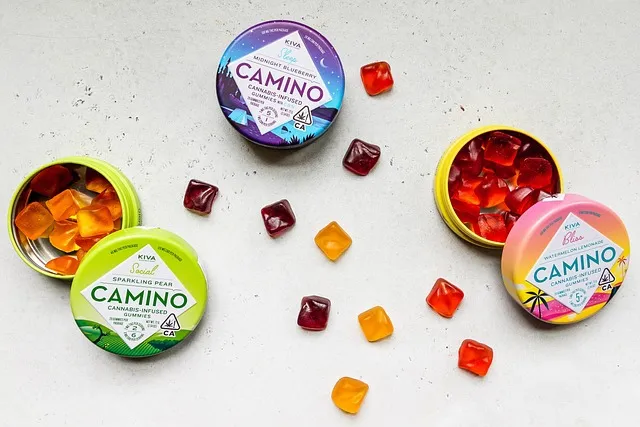If I eat cannabis edibles instead of smoking it, will my tolerance decrease?

CSailor Asked
Does the method that a person uses to consume cannabis affect tolerance? For example, if a person smokes or vapes a majority of the time and they switch over to edibles, will the tolerance remain the same or will the different form of ingestion change that? Thanks!
Summary

Answer
Hi and thanks for a great question! You’re most likely referring to tolerance to the intoxicating effects of tetrahydrocannabinol or “THC”, so that’s what I’ll focus on below. You’re also specifically interested in knowing if switching from inhaling cannabis/THC to another method of ingestion, such as oral consumption, will have any impact on your tolerance. The short answer is that it will, but unfortunately due to a lack of research on the topic it is hard to exactly say how and to what extent.
What is Tolerance?
Tolerance is defined as a diminished response to a drug that occurs when the drug is used repeatedly, and is a result of the body (and brain) adapting to the continuous presence of the drug. Basically, tolerance is a result of our body’s natural tendency to try to maintain homeostasis.
How Does Tolerance to Cannabis Work?
Endocannabinoids are chemicals that are naturally produced by our bodies. These chemicals engage with a system of receptors throughout our bodies called the endocannabinoid system. This system functions to maintain homeostasis. When we use cannabis, we introduce external cannabinoids, such as THC, to this system and create an imbalance in it. The normal function of the endocannabinoid system is disrupted and the body adapts as a result of these changes. The longer that THC is present, the more likely these adaptations will occur.
The most important mechanism by which tolerance to cannabis/THC occurs is through a down regulation of cannabinoid receptors in the brain and central nervous system. This happens because the brain is not used to the constant presence of THC, so overtime it adapts by reducing the amount of cannabinoid (type 1) receptors available for the drug to bind too. It’s important to note that this is not beneficial longterm because once THC is no longer present, there are less receptors for the body’s natural endocannabinoids to bind to and the function of the endocannabinoid system is essentially reduced. The brain will eventually readapt and produce more receptors if the drug is absent for a long enough period of time. But again, the main determinant is time. Therefore more frequent cannabis use leads to more tolerance.
An additional mechanism of tolerance to cannabis/THC is called dispositional tolerance or enhanced drug clearance. However, this does not appear to be an important mechanism for tolerance to cannabis/THC and is usually more relevant with other orally administered drugs such as alcohol, antibiotics, and barbiturates. THC is metabolized by the liver, and if exposed to the drug for a long enough period of time, the body may up regulate enzymes responsible for metabolizing THC increasing the rate that the drug is eliminated from the body. But again, this does not appear to be the a primary contributor to cannabis tolerance in most cases.
Do Edibles Reduce Tolerance Compared to Smoking?
Edibles aren’t likely to reduce your tolerance compared to smoking, but unfortunately there is just not enough research to tell definitively. If I had to guess I’d actually say this switch may increase your tolerance because you’re increasing the amount of time your body is exposed to THC. Also, because dispositional tolerance is usually more relevant with orally administered drugs, by switching to edibles you may increase the likelihood of up-regulation of metabolic enzymes in the liver leading to enhanced clearance of the drug. This would introduce an entirely different mechanism of tolerance, but again doesn’t appear to be that likely based on what little research is available.
Inhaling cannabis produces high blood concentrations of THC quickly, but the blood concentrations don’t stay high for that long. The THC blood levels decrease fairly quickly after smoking. On the contrary, when you eat or consume cannabis, blood concentrations of THC increase gradually as the drug is absorbed from the small intestine. Then the levels are slowly reduced overtime as the drug is metabolized. Because oral consumption produces a longer lasting exposure to THC, I believe that this would be more likely to increase your tolerance to the cannabis. Again, I have no research to prove this definitely, but that’s my professional opinion.
Conclusion
If you do switch from smoking and vaping to using edibles the mechanisms that contribute to tolerance may change slightly, but how that impacts the overall effects of the drug has yet to be established in well controlled studies. In my opinion, switching to edibles is more likely to increase your tolerance to cannabis than reduce it. I hope this helps answer your question! Feel free to reach back out at anytime.
- Tolerance & Resistance to Drugs Article Link.
- Molecular Mechanisms of Cannabinoid Addiction PubMed.
- Tolerance to Effects of High-Dose Oral Δ9-Tetrahydrocannabinol and Plasma Cannabinoid Concentrations in Male Daily Cannabis Smokers PubMed.




